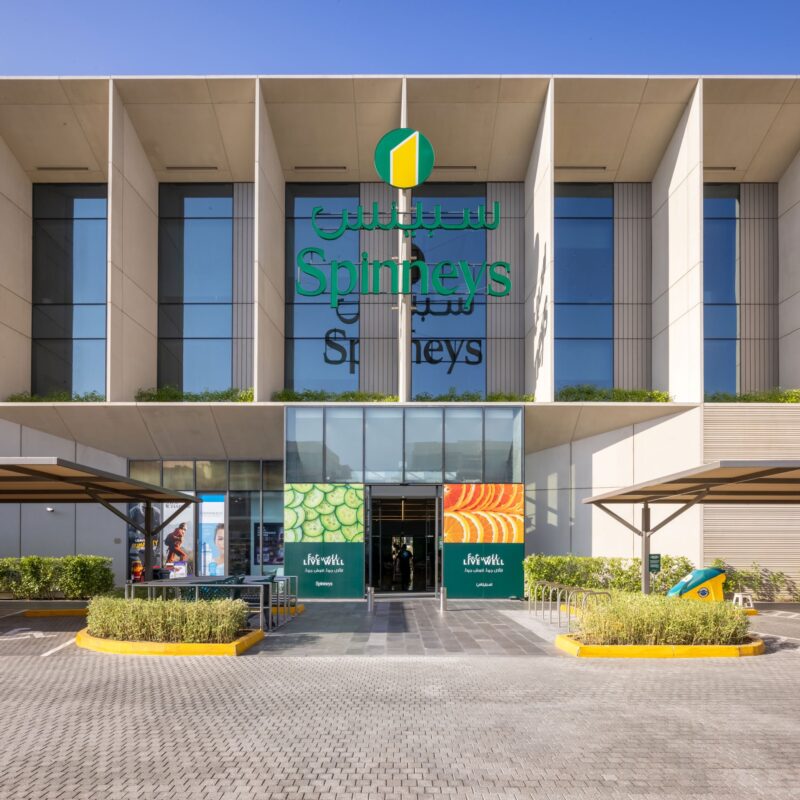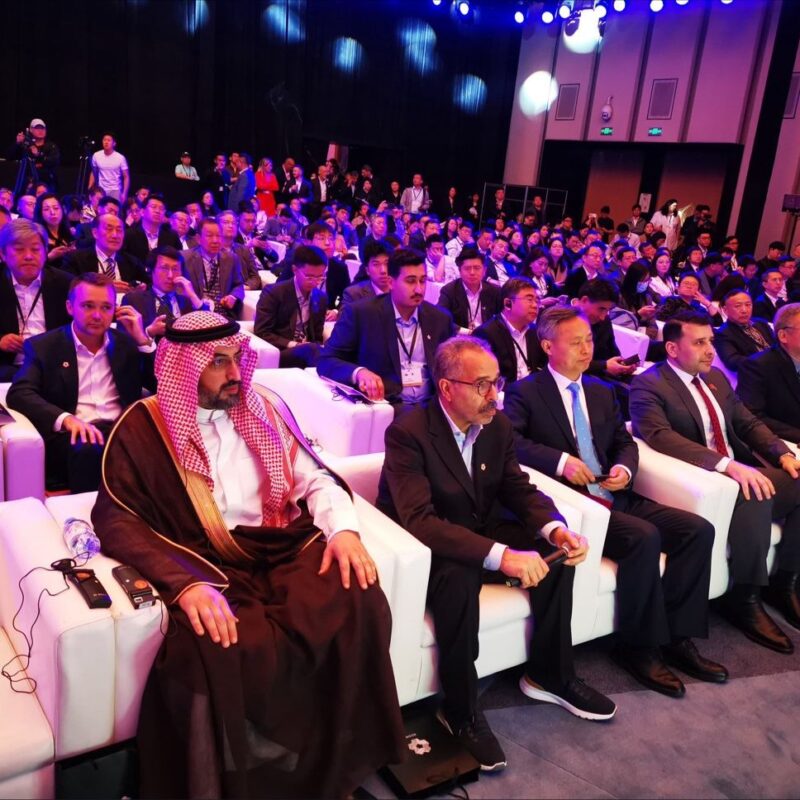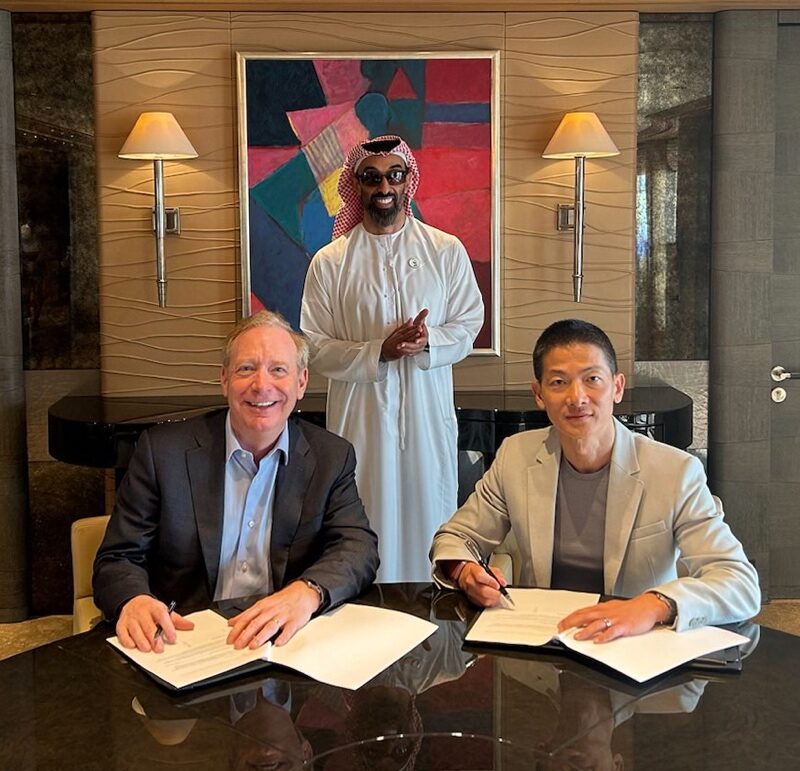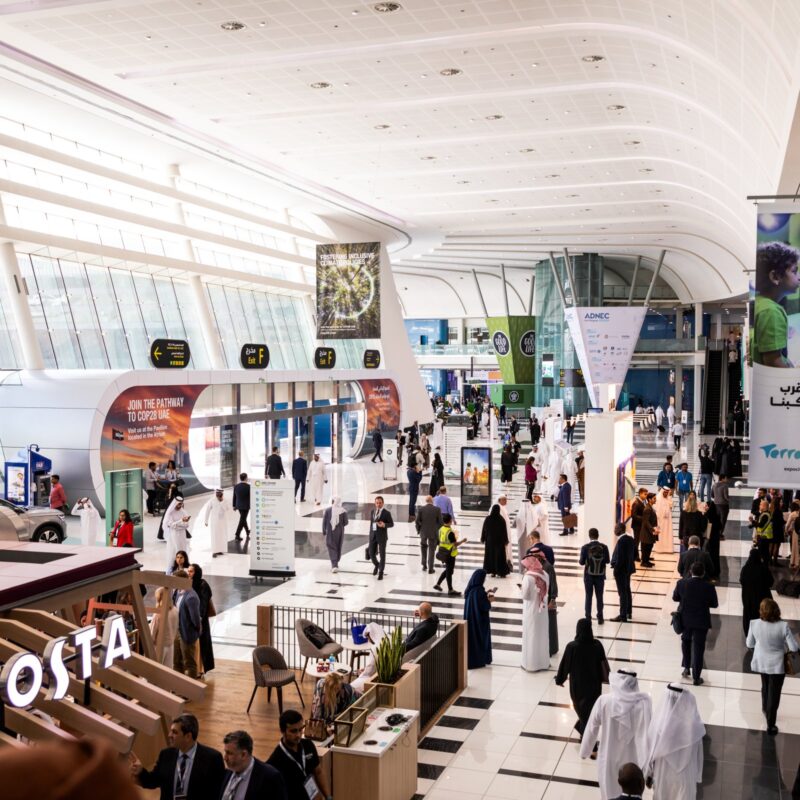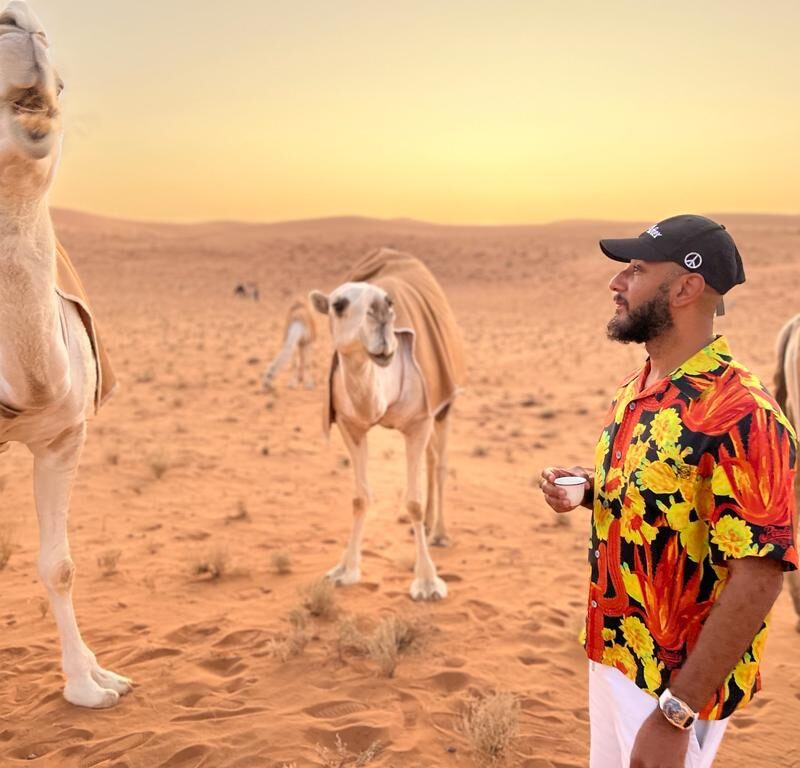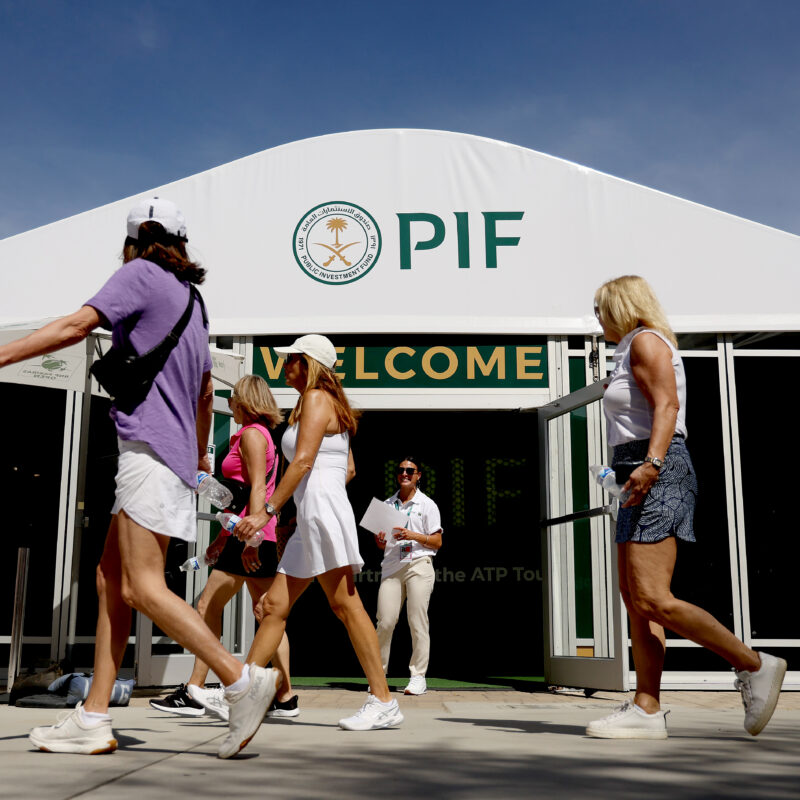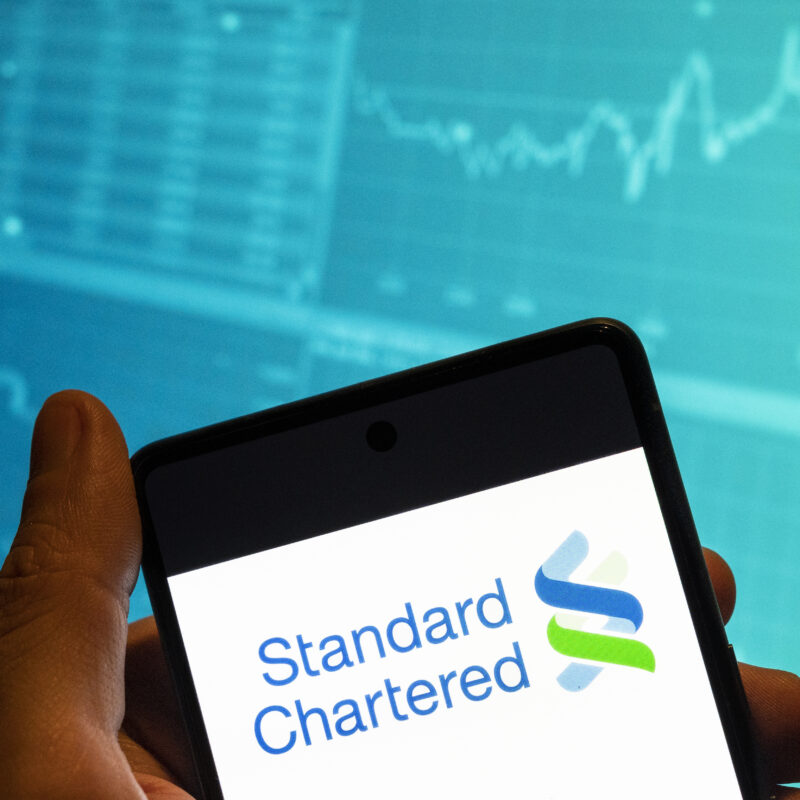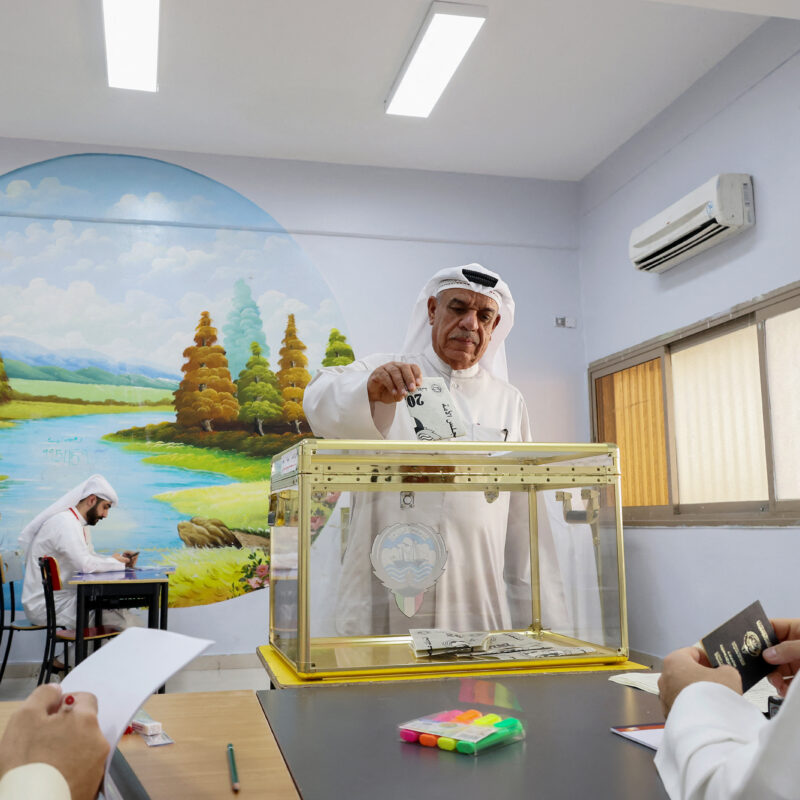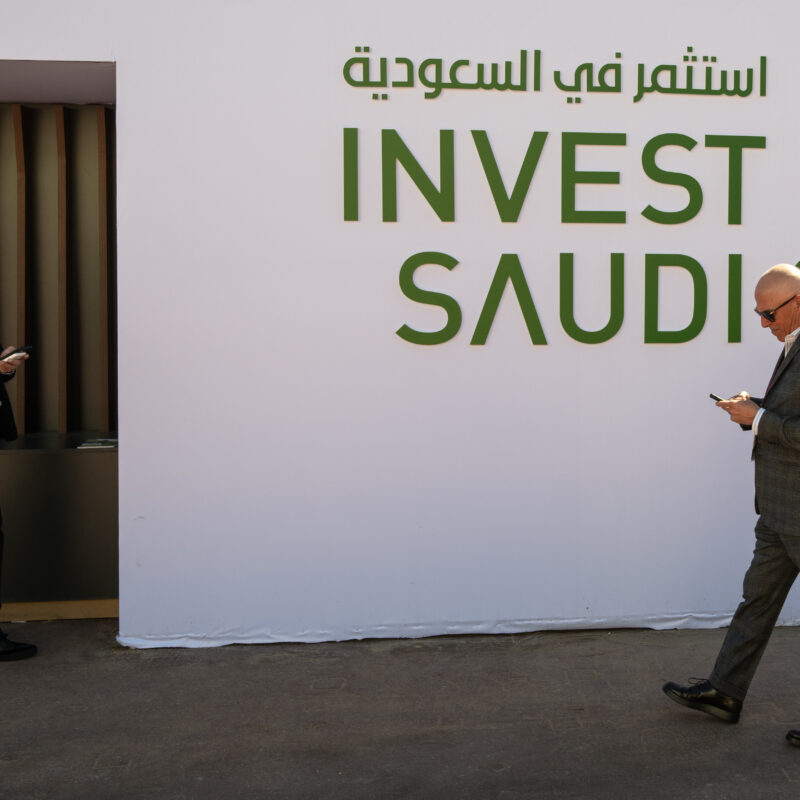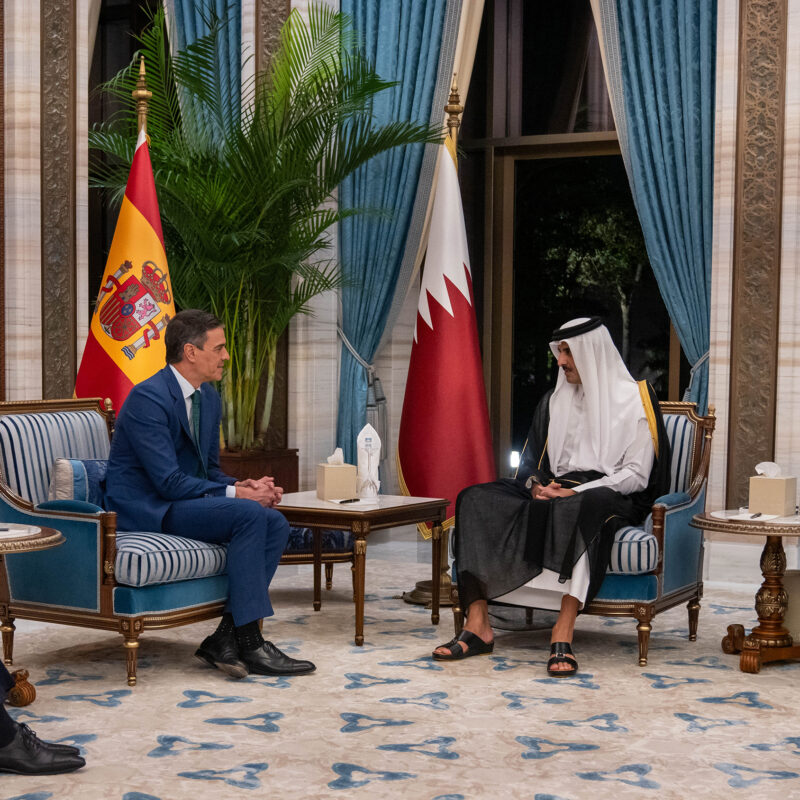Stem cells, biomed pave path to Abraham Accords cooperation
Health care leaders from UAE and Morocco discuss business opportunities at Israel’s largest biomedical conference

Alexander Elman
BioMed Israel conference Co-Chair Dr. Nissim Darvish (left), Dr. Maysoon Alkaram of Sheikh Khalifa Medical City; ADSCC's Dr. Fatima Al Kaabi; Seegnal CEO Eyal Schneid; Aviv Oranim of Oranim Capital Partners
TEL AVIV, Israel – A senior stem cell researcher from the United Arab Emirates and a Moroccan pharmaceutical company took part in Israel’s largest biomedical conference last week, highlighting how the Abraham Accords have led to cooperation in the medical technology field.
Dr. Fatima Al Kaabi, executive director of the Abu Dhabi Bone Marrow Transplant Program at the Abu Dhabi Stem Cells Center, and Marwan Abdulaziz Janahi, executive director of the Dubai Science Park, addressed the BioMed Israel conference. The May 16-18 gathering in Tel Aviv brought together thousands of medical industry leaders from 45 different countries. Morocco was represented by Laprophan, a pharmaceutical company based in Casablanca.
“There was this period of getting to know each other, which I think we’re now almost over with, and now everyone is saying OK, let’s just do things together,” Janahi told The Circuit after his presentation to the conference. He said it’s taken a while for both sides to break their preconceptions of the other, but as more and more people form personal connections through visits and business deals, many companies are now ready to get to work.
“I was on one of the first missions to come,” Al Kaabi said. “It was during COVID and the streets were empty, but the energy was beautiful.” She recalled meeting with a number of Israeli medical startups on her first trip, one of which, Seegnal, she is now using at the ADSCC. The company does a quick and immediate scan of a patient’s medical chart to ensure that any medicine that a doctor wants to prescribe will not have dangerous interactions with other medications a patient is taking and is safe based on the patient’s known medical history.
“[The Gulf] is a target market for us, because we believe with the resources they have, their vision and how they see health care, it’s a perfect match for the technology that Israeli companies can provide,” Eyal Schneid, CEO of Seegnal, told The Circuit. “These are forward-thinking countries with resources and capabilities to implement technology and Israeli technology innovation,” he said.
Seegnal started working with the stem cell center at the Yas Clinic, a hospital in the emirate that has 90 beds. The center is using Seegnal to enable doctors to check prescriptions against hundreds of patient-specific data points. In more than 50 cases, the center has run full pharmacological genetic tests on a patient, meaning that Seegnal can check drug interactions based on a patient’s unique DNA, and make suggestions for changes as needed, Schneid explained. He is excited about the possibilities for this level of precision medicine.
“In ADSCC, we’re checking that the medicine you’re taking is right for your DNA… whereas without this DNA info, doctors are guessing that a certain medicine is the right therapy,” he said.
“This program helps people to see the drug interaction, reduce cost, reduce toxicity and reduce side effects,” said Al Kaabi, a hematologist whose personal area of expertise is blood cancers that are resistant to treatment. “Now we are using it on a wider scale of population, so it grew from a very small kind of project to a project that is actually helping people to have a better outcome.”
The Abraham Accords were signed in September 2020 at the height of the COVID-19 pandemic, so health was an immediate and pressing field for cooperation, with multiple memorandums of understanding between Israel and the UAE agreed upon soon afterwards. One of the first collaborations was between Abu Dhabi’s G42 Healthcare and Israel’s NanoScent to develop, distribute and manufacture a test that detects COVID-19 from exhaled air.
Major hospitals in Israel, including Sheba Medical Center and the Galilee Medical Center, are cooperating with medical centers in the UAE to share information, research and best practices. Sheba hospital is also working directly with the King Hamad American Mission Hospital in Bahrain, especially in telemedicine. Clalit, the largest of Israel’s four health HMOs, is partnering with Abu Dhabi’s Ministry of Health to share information about digital health services and research for medical trials.
Janahi, of the Dubai Science Center, said the most important thing now is to get universities, hospitals and industry to cooperate, to ensure that initiatives are harnessing both the cutting-edge research with the economic infrastructure to ensure they are financially sustainable.
One of the immediate areas for increased cooperation, Janahi said, is in medical tourism. Although the UAE is a popular destination for treatment, especially in dermatology, dental and orthopedics, about 10,000 residents of the UAE go elsewhere for medical procedures every year. Janahi said that currently most people go to the U.S., Europe and South Korea for complicated medical treatments that may not be available locally, but he hopes to see Israel become a major medical tourism destination for UAE residents.
“This, in my opinion, is a low-hanging fruit,” he said. “Not only because Israel is closer but also because the Israeli doctors can then work with the UAE doctors and share knowledge.”
Both Jahani and Al Kaabi said they hope to see cooperation in specific fields that can have the maximum impact to help UAE residents suffering from medical issues, including multiple sclerosis, diabetes, cardiovascular disease and kidney disease.
Although this was the first BioMed conference with representatives from the UAE and Morocco, all sides expected the number to increase in future years as more companies and institutions create cross-border initiatives. At the end of the day, regardless of political agreements and collaboration challenges, Al Kaabi said the essence of medicine boils down to doing no harm, to looking on all human beings as equal and equally worthy of healing.
“I am not a politician, I’m a medical doctor, and seeing how to collaborate with a vision of adding value to humanity is the key,” she said. “I’m glad that we lived long enough to see that we can collaborate on a different level when it comes to humans.”
